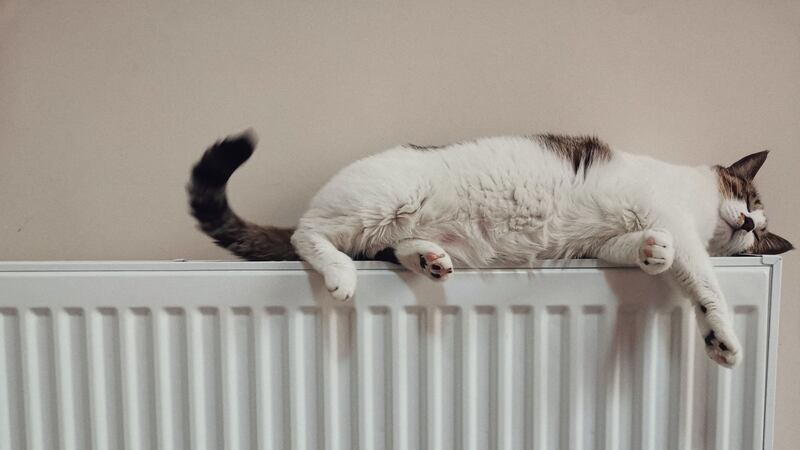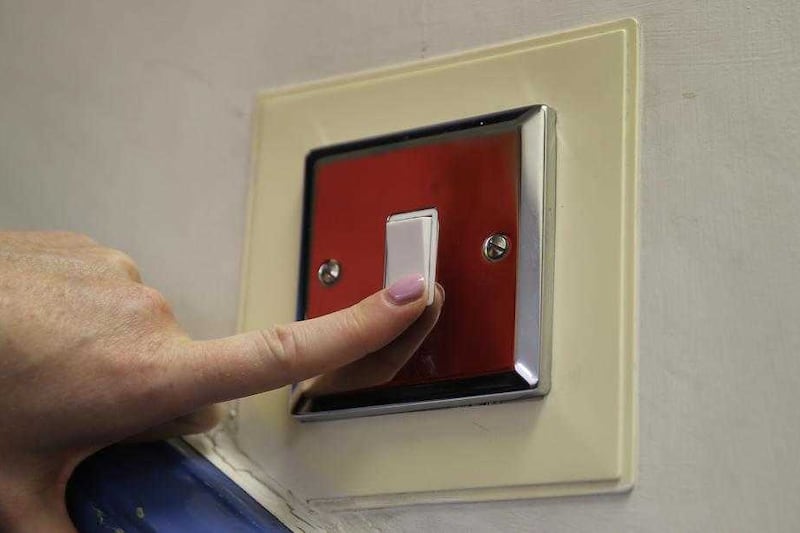 SPONSORED BY
SPONSORED BYPOWER TO SWITCH NI
The beginning of 2022 has brought with it sky-rocketing energy prices. The rising cost of electricity, gas and home heating oil means that many families are facing energy bills that are over £1000 more expensive than this time last year.
Add rising energy bills on top of rising food prices, inflation and other cost of living increases and it’s not hard to imagine how difficult 2022 will be to keep on top of household expenses.
The truth is we will all pay more for our home energy this year. There is no way to avoid the increases but it is possible to take action, which can help to reduce the impact.

Just one degree on your thermostat can make a difference on your monthly bills
Here, we have five different ways you can help to reduce your energy bills and how much you can save:
1Switch Supplier
You may think there is little point switching energy suppliers as rising wholesale costs will affect all suppliers. However suppliers do not all buy energy in the same way…they have different purchasing strategies which means they can offer different deals, tariffs and incentives.
If you have not changed energy deals in the last 12 months, you are likely spending more than you need to on your energy deals. At the moment in Northern Ireland there is a difference of £489 between the most expensive and most competitive electricity tariff.
It takes around three minutes to switch suppliers using www.powertoswitch.co.uk. Switching is free, risk-free and comes with a 10 day cooling off period, too.
2 Update your insulation
Sometimes your heating issue has more to do with keeping the heat in your house rather than pumping more in. Uninsulated roofs and attics can make up to 20 per cent of your home’s heat loss, while poorly insulated walls account for a further 35-45 per cent - all of which means that you are paying for heat that you will never feel the benefit of.
Some good insulation tactics include:
Adding rolls of insulation to your attic or roof space
Stuffing your wall cavities with extra insulation
Installing window insulation strips
Using draught excluders
Blocking your chimney if you do not use it regularly
3 Turn down the thermostat
Just 1 degree on your thermostat can make a difference on your monthly bills. Try turning the thermostat down degree by degree to find a comfortable temperature – each degree can typically save around £80 a year. That means that you can both save money and not go cold, either.

Switching to energy efficient lights such as LED spotlights could help you save energy
4 Look at your lighting
Switching to energy efficient lights such as LED spotlights could help you save energy on your bills – if the average household replaced all their bulbs with LEDs, it could save up to £40 a year.
And for an extra tip – remember to turn off your lights when you’re not using them! This will help reduce the amount of energy you use every day and could even knock up to £15 a year off your energy bill.
5 Turn off, not on standby
You can save around £55 a year just by remembering to turn your appliances off standby mode.
We often leave appliances and devices on standby, rather than turning them off entirely. Standby basically means that your device is running at a very low capacity - but even low capacity running requires energy. This means that our televisions, microwaves and laptops are still sapping energy from our home, without providing any additional value. Cut off the supply entirely and switch off your devices completely, not just standby or sleep-mode.
Extra Help and Support
If you are struggling with your electricity or gas bill it is important to get in touch with your energy supplier. They are required to work with you to find suitable solutions to help you manage energy costs.
Energy grants can also help with the cost of upgrading your heating system or making your home more energy efficient which can help reduce energy use and bills. To find out more check out information on NI Direct. If you are still finding it difficult to afford to heat your home you should seek support from organisations such as adviceni or stepchange.
Power to Switch is an free, independent price comparison tool for home energy in Northern Ireland and Ireland.


